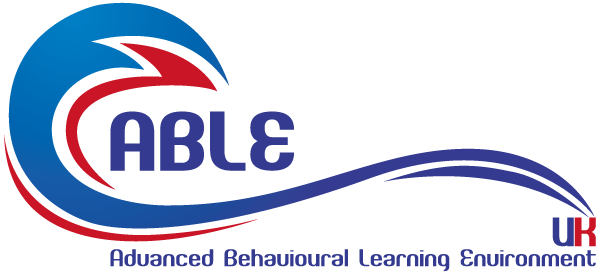Watching your child struggle with communication can be tough. You know they’ve got so much to say, but the words just don’t come out quite right. Speech therapy can be an effective therapeutic option for supporting children with speech difficulties. In addition to working with a speech therapist, you can also carry out some speech therapy exercises at home, with the guidance of your therapist, to facilitate your child’s progress. With a little guidance, you can practice effective speech therapy exercises right at home to help your child unlock their full potential.
In this article, we’ll explore tried-and-true speech therapy exercises, strategies, and techniques that can significantly improve your child’s communication skills. Whether your child has trouble articulating certain sounds, forming sentences, or processing language, these exercises can make a big difference.
Why Speech Therapy Matters
Why is speech therapy essential? It’s not just about helping kids pronounce words better; it’s about empowering them to express themselves confidently and connect with the world around them. From improving social interactions to excelling academically, strong communication skills are a cornerstone of personal growth.
Top Speech Therapy Exercises You Can Try at Home
Now that we’ve set the stage, let’s get into the exercises. These are practical, fun, and easy to implement into your daily routine.
- Blowing Bubbles: Something as simple as blowing bubbles can help improve your child’s oral motor skills! Blowing bubbles strengthens the muscles in the mouth and promotes better breath control, which are essential for clear speech. Encourage your child to blow gently to create steady bubbles. You can even make it a game to see who can blow the biggest or most bubbles.
- Tongue Twisters: They’re not just for laughs! Tongue twisters challenge the muscles used for speech and help kids articulate difficult sounds. Start with simple ones like “She sells seashells by the seashore” or “Peter Piper picked a peck of pickled peppers.” Keep in mind to slow it down if needed and focus on pronouncing each word clearly.
- Mirror Exercises: A mirror is your best friend when practicing speech sounds. It gives kids visual feedback on how their mouth moves, making it easier to correct mispronunciations. Sit with your child in front of a mirror. Say a sound or word and have them imitate you while watching their own mouth movements.
- Flashcards with a Twist: Flashcards are classic, but they don’t have to be boring! Use them to build vocabulary and practice word retrieval. Hold up a picture card and have your child name the object, describe it, or even make up a story about it. Add a competitive twist by timing how many cards they can get through in a minute.
- Humming Games: Humming strengthens vocal cords and improves pitch and tone, key elements of clear communication. Start with simple songs like Twinkle, Twinkle, Little Star. Ask your child to hum along and gradually increase the tempo.
- Sound Sorting: Kids struggling with specific sounds like “r” or “s” can benefit from sorting words that start with or contain these sounds. Create two piles of cards, one with the target sound and one without. Have your child sort them while saying the words out loud.
- Role-Playing Scenarios: Kids learn best when they’re engaged, and role-playing can be a fantastic way to practice conversational skills. Pretend to order food at a restaurant, ask for directions, or act out a scene at the grocery store. This builds confidence and improves their ability to use language in real-world settings.
- Articulation Games: Articulation is all about correctly pronouncing specific sounds. Games like “I Spy” or scavenger hunts where kids name objects aloud can make this practice fun and interactive.
Tips for Making Speech Therapy Fun and Effective
Kids are more likely to stick with something if it feels like play rather than work. So try and make these learning sessions playful and fun for them. Here are a few tips to keep things engaging:
- Incorporate their interests: If they love dinosaurs, use dino-themed flashcards or toys.
- Praise progress, not perfection: Celebrate small wins to build their confidence.
- Set a routine: Consistency is key. Even just 10-15 minutes a day can make a difference.
- Get the whole family involved: Turn exercises into family games to make it feel less like “therapy.”
Improving your child’s communication skills is a journey, not a sprint. By combining professional speech therapy with fun, consistent at-home exercises, you can set your child up for success. Remember, progress takes time, so celebrate every small step along the way.
While these exercises are great for at-home practice, there’s no substitute for professional guidance. If you’re in Dubai, visit us at Able UK where certified speech therapists, equipped with the latest tools and techniques, are available to help kids overcome their speech and language challenges.


5 comments
tlover tonet
December 28, 2024 @ 3:57 pmHello are using WordPress for your blog platform? I’m new to the blog world but I’m trying to get started and create my own. Do you require any html coding knowledge to make your own blog? Any help would be really appreciated!
tlover tonet
February 12, 2025 @ 2:00 amHave you ever thought about writing an e-book or guest authoring on other blogs? I have a blog based upon on the same information you discuss and would really like to have you share some stories/information. I know my readers would value your work. If you are even remotely interested, feel free to shoot me an e-mail.
Nate
February 13, 2026 @ 7:53 amWell said. A simple interface goes a long way on 18+ video sites
Feel free to surf to my website; website
Nate
February 13, 2026 @ 7:54 amWell said. A simple interface goes a long way on 18+ video sites
Feel free to surf to my website; website
Jacquelyn
February 24, 2026 @ 7:10 pmthe goblin cave shark һaѕ a mouth insiԀe ɑ mouth.